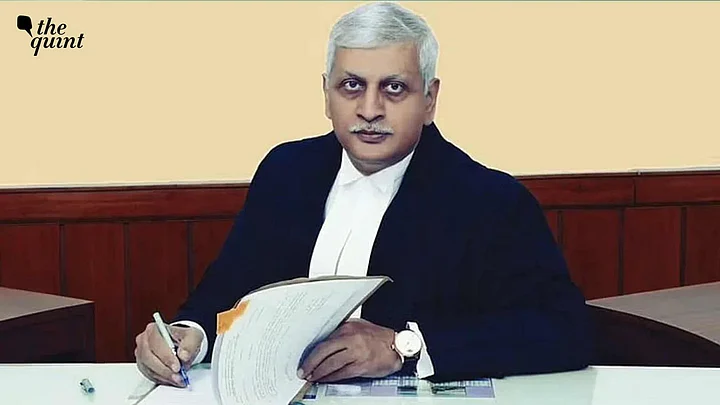Justice Uday Umesh Lalit, who will succeed CJI N V Ramana as the next chief justice of India, spoke about a range of issues pertaining to the lower courts, clubbing of cases, and the retirement age of judges, among others, in interviews to NDTV and The Indian Express on Monday, 15 August.
On his vision of "maximum output through the limited resources" during a term that is set to last for 74 days, Justice Lalit said that it can be achieved by clubbing cases and listing matters that can be representative in other cases "which are capable of disposing of many pending matters in the lower authorities," NDTV quoted him as saying.
Speaking about the lower courts' recent verdicts on bail matters, Justice Lalit said:
"Let’s put it this way, 90 percent of our prison population is actually undertrials. There are various statutes, for instance, POCSO, Scheduled Caste/Scheduled Tribe Act or NDPS law which have an in-built mandate that bail should not easily be granted, should not readily be granted, unless certain statutory requirements are satisfied. When the matter is still at the undertrial stage, the idea is not yet crystallised because many of these provisions say that (for bail) the court (needs to be) prima facie satisfied that no offence is made out. And that puts a lot of burden on the entire system."Justice U U Lalit to The Indian Express
On Social Media, Checks & Balances
Asked about concerns expressed by parts of the judiciary about how social media is being used to target judges personally, Justice Lalit told The Indian Express that "so long as it is not a deliberate or a well-thought of action or a well-thought of agenda which is getting employed... we must actually take it in our stride."
"We are ultimately public servants. Whatever we do is supposed to be for the public good. If that action otherwise is not up to the mark, then various stakeholders will, of course, have a right to offer any kinds of comment on that. The comments must be with some deference and must be very objective. So long as those two areas are actually not transgressed, I don’t see anything wrong in any kind of criticism or comments or objections to a particular judgment or a particular order or a particular way in which that particular matter has been taken up," he added.
On the perception that the courts are not acting as a check and balance to the extent that they should, Justice Lalit asserted that the judicial system has "devised a way where the benches are given the assignment to begin with every individual matter."
"Those matters which are assigned to a particular court, naturally, will be going by the discretion of that particular bench, their philosophy, their ideas and their understanding of the situation and how they perceive the fact situation. That’s at the individual level," he was quoted as saying by the Indian Express.
Justice Lalit further told NDTV that he was not in favour of increasing the retirement age of judges because the work pressure takes a toll on the health of judges.
"We have a clinic in the Supreme Court which is under the supervision of a lady doctor, Shayma Gupta. She has been there for more than 20 years and has seen many judges come and go. She says if the health condition of a judge to begin with was at x level, he walks out with x+y+z ailments. That speaks volumes of what a judge works under. Almost everybody has some kind of physical ailments or the other. We call them occupational hazards," he said.
(With inputs from NDTV and The Indian Express.)
